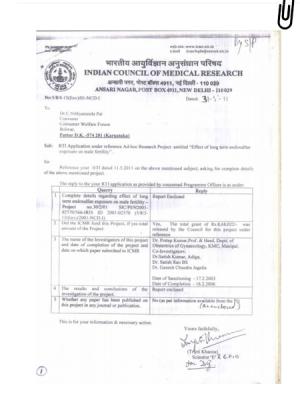EMFWA takes Karnataka to court
The Endosulfan Manufactures and Formulators Welfare Association (EMFWA) have challenged the Karnataka ban on endosulfan in the Karnataka High Court. They pesticide manufacturers have said that the ban was 'unscientific' as there are no studies done in the state to prove that endosulfan was the cause of the health conditions of the people in the affected villages.
The pesticide has been banned in the state under the section 27 (1) of the Insecticide Act, 1968. Under the section, if the state receives reports of risks to humans and animals and feels its necessary to take immediate action to stop the use of the pesticide can issue a gazette notification prohibiting the sale, distribution and use of the insecticide for a maximum period of 60 days pending investigation into the matter. However, after the 60 day period, the state, pending an investigation, can further the ban by periods of 30 days.
“The Karnataka government will stand by its ban and take recourse to the provisions in the Insecticide Act. However we have also appealed the centre to push for a nationwide ban,” said VS Acharya, state minister for higher education.“The pesticide manufacturers have a very weak case. 73 countries have banned endosulfan. We have enough scientific studies available all around the world and in Kerala as well to prove that endosulfan has severe health impacts on people and the ecology. We are going to push for a national ban,” he added.
The Karnataka government announced a ban on endosulfan with immediate effect in a cabinet decision on February 17. The decision was taken after Karnataka chief minister BS Yeddyurappa took note of the numerous reports on health impacts especially physical deformities caused due to the aerial spray of endosulfan in the cashew plantations.
Aerial spray on the cashew plantation continued for nearly 20 years in Dakshin Kannada's cashew plantations. A Right To Information reply from the Karnataka Cashew Development Corporation (KCDC) reveals that the amount of endosulfan aerially sprayed between 1980-2000 in 850 hectares in Belthangady and Puttur taluk in Dakshin Kannada district in Karnataka was 32,604 liters (25,788 liters of endosulfan and 6,816 liters of Hildan (another name for endosulfan)). 11,225 liters of endosulfan was also manually sprayed during this period. This spraying affected nearly 20 villages in both the taluks.
“The health conditions in these villages is scary. The aerial spraying has had various consequences including congenital deformities, mental/ physical ailments. The impact is similar to those affected in Kasaragod village in Kerala, which is also the neighboring district,” said VS Acharya, the state minister for Higher Education.
Yeshwantpur MP Shobha Karandlaje, the minister for food and civil supplies has welcomed the decision of the ban. Karandlaje who hails from Dakshin Kannada district has been pushing for an action on the pesticide for a long time, it was due to her efforts that the state in February 2010, a survey was conducted in the villages of Kokkada, Patrame and Nidle and compensation of rs 50,000 was distributed amongst 231 people who were the suspected victim of endosulfan.
Though aerial spraying stopped in the cashew plantations in 2000, the use of endosulfan has been going on unabated. “Endosulfan is still being used in large quantities by farmers across the state on different crops and vegetables for the simple reason that it comes very cheap. The ban will assure that its use is stopped,” said Sridhar Gowda, a former school teacher and an activist working in the villages in Dakshin Kannada's Belthangady taluk with endosulfan victims. Endosulfan is used on crops like paddy and jowar, vegetables like brinjal and cabbage and plantation crops like coffee and tea.
Though the ban has been imposed, the question remains whether the state government will be able to impose it strictly enough and crackdown the illegal entry of the pesticide, a problem that the Kerala government has been facing even after five years of the ban of pesticide. The government however is confident that they will be able to crack down on any illegal use of pesticide.
Multimedia | Audio/video
July 10, 2017
Endosulfan National Seminar at Kasaragod - Concord'12
The Endo Ban Tracker
Story
Press Releases
Letters
Updates
Presentations
Disclosed: Lies about endosulfan
July 02, 2017
Disclosed: Lies about endosulfan
July 02, 2017
Best Practices
Judgements
Others
Down to Earth

July 13, 2017

July 13, 2017

July 13, 2017

July 13, 2017

July 13, 2017

July 13, 2017

July 13, 2017

July 13, 2017









Share this article